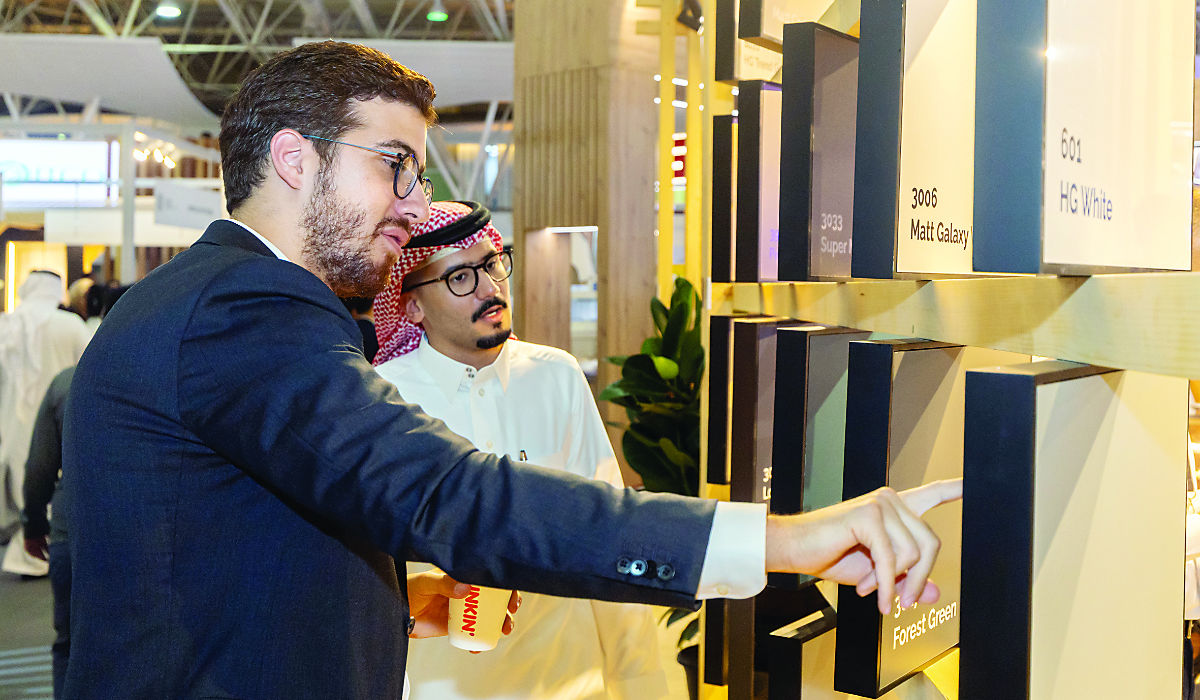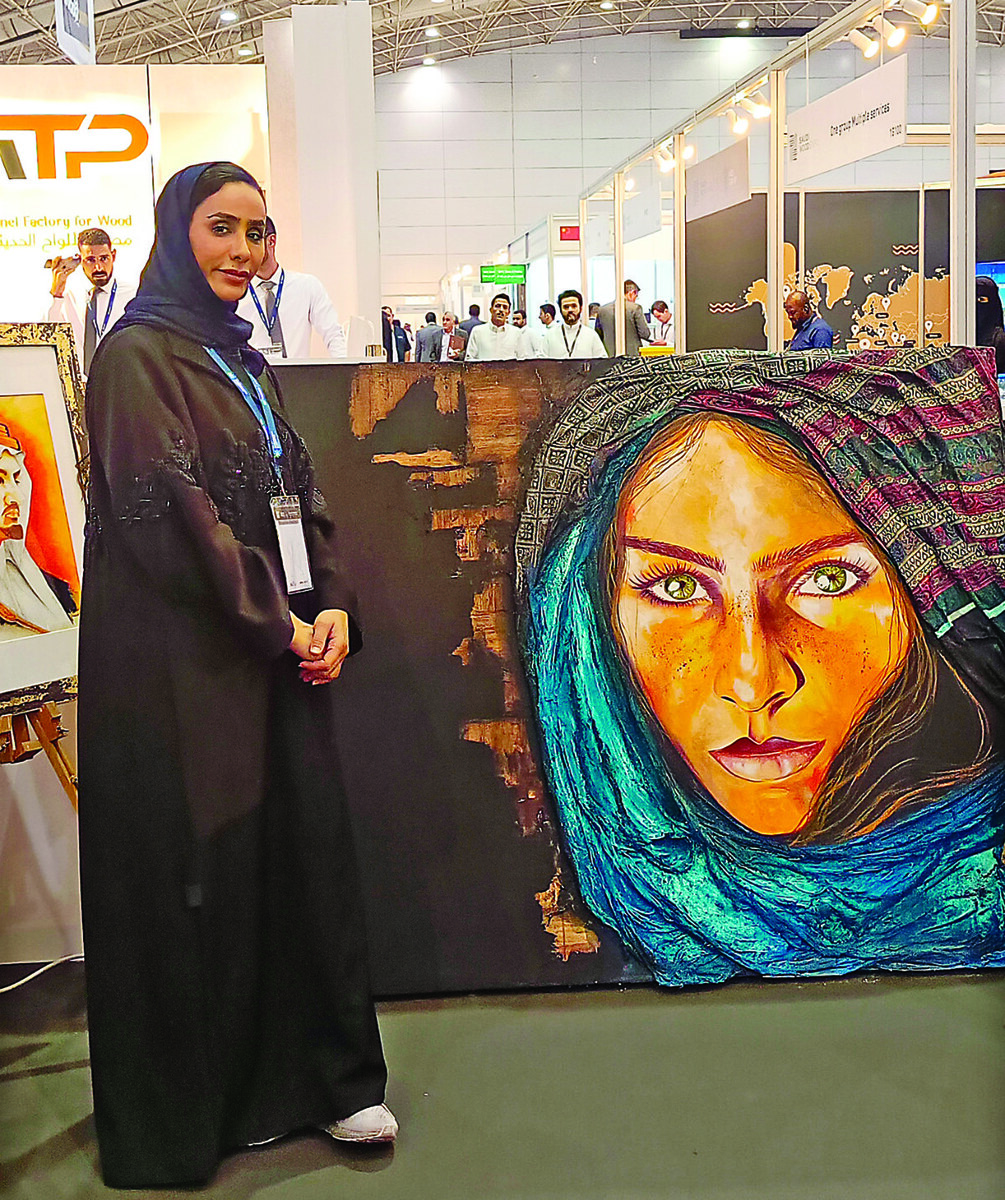RIYADH: Two expos being held side by side in Riyadh are aiming to support the Saudi logistics sector in line with the national Vision 2030 program.
The Saudi Warehousing and Logistics Expo and the Saudi Wood Expo were inaugurated by Hassan Al-Hwaizy, president of the Federation of Saudi Chambers of Commerce, bringing warehousing, logistics, wood and woodworking firms under one roof in the Kingdom.
Held at the Riyadh International Convention and Exhibition Center until Sept. 4, the three-day event was opened by Al-Hwaizy, who said: “We participate in this significant logistics event as a supporting partner, demonstrating our dedication to advancing and enhancing the logistics sector in support of Saudi Vision 2030.”

Featuring more than 3,500 products and services, the Riyadh event showcases the latest technologies and strategies in logistics services and warehousing solutions. (AN photo/Supplied)
Featuring more than 3,500 products and services, the event showcases the latest technologies and strategies in logistics services and warehousing solutions, he added.
Mohammed Kazi, senior vice president of construction at dmg events, the organizer of the expo, said: “The bustling aisles on the opening day underlined the growing demand for supply chain solutions and distinctive wood products in the Kingdom, reflecting its ambition to establish itself as a leading industrial powerhouse and global logistics hub.”
We participate in this significant logistics event as a supporting partner, demonstrating our dedication to advancing and enhancing the logistics sector in support of Saudi Vision 2030.
Hassan Al-Hwaizy, President, Federation of Saudi Chambers of Commerce
Amr El-Mansoury, chief supply chain officer at Tamer Group, told Arab News that exhibiting at the expo is “a rewarding experience” and offers the opportunity to showcase products and forge industry connections.
“The seamless coordination and support from the event organizers made it a standout opportunity for growth in our sector,” he added.

Hassan Al-Hwaizy, President, Federation of Saudi Chambers of Commerce
At the expo, Tenderd, a fleet management platform, showcased a live demo of its AI-powered safety system, designed for logistics and warehousing companies. The system uses advanced AI and real-time monitoring to enforce safety protocols, reduce risks and boost operational efficiency, ensuring safer work environments even in challenging conditions.
Another exhibitor, Almajdouie Logistics, a Dammam-based transport and logistics giant, unveiled new models of the Peugeot Partner and Citroen Berlingo vans that combine advanced technology with efficiency and reliability.
Fian Group, a Jeddah-based supplier of specialized chemicals and finishing products, presented a live demo of its mobile industrial robots, which enhance infrastructure projects by “optimizing resources and maintaining operations,” and “supporting smart living in residential developments through automated services and sustainable solutions.”

Wijdan AlJahwri, operations manager, Ufnoon Gallery at the expo. (AN photo by Rashid Hassan)
Desert Board launched Palm Strand Boards, the world’s first sustainable three-meter, 60-minute fire-rated door core made from annual regenerated palm biomass.
The first Saudi Logistics Summit’s sessions explored industry priorities and discussed the significance of international partnerships and localizing manufacturing.
Dr. Abdullah Al-Abdulkarim, CEO of the Saudi Logistics Academy, highlighted the importance of the In-Kingdom Total Value Add program in supporting the expansion of the Kingdom’s logistics industry and helping Saudi Arabia climb ranks on World Bank’s Logistics Performance Index.

Visitors at Ufnoon Gallery at the expo. (AN photo by Rashid Hassan)
In another session, Ahmed Attia, group supply chain director of Zahrawi Group, said that investment in distribution efficiency will drive economic growth and enhance outcomes in the Kingdom.
The expo also features a talks program, Wood Hala Chats, where speakers lead awareness sessions focused on sustainability, digitization and automation in the woodworking industry.
Meanwhile, Ufnoon Gallery is showcasing art at the event.
Wijdan Al-Jahwri, operations manager at the gallery and a visual artist for more than 20 years, told Arab News: “Art is beauty. It speaks to all but with different nuances and that’s where the beauty lies.
“It is an expression of a human being’s creative mind, their feelings, imagination and personal emotions. I am happy that our gallery is drawing visitors at the expo.”






























